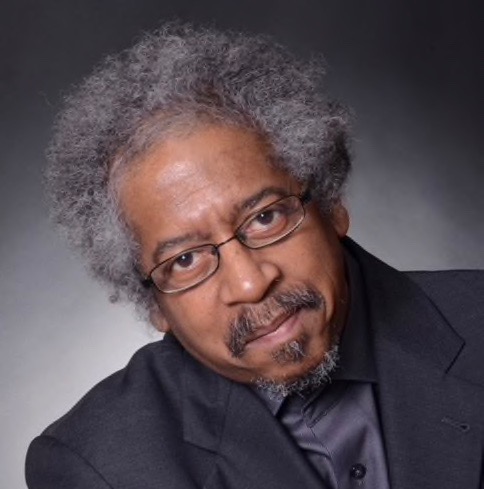Jan 13, 2026 2:09 PM
More Trump-Kennedy Center Cancellations
The fallout from the renaming of the John F. Kennedy Center for the Performing Arts to include President Donald…

William A. Brower Jr.
(Photo: Courtesy of the Brower family)William A. Brower Jr., a former DownBeat contributor and longtime fixture on the Washington, D.C., jazz scene as a writer, programmer, stage manager and festival producer, died of complications from a stroke on April 12 at Georgetown University Hospital in the District. He was 72.
Born in Toledo, Ohio, in 1948, Brower’s father was the first Black reporter at the white-owned Toledo Blade newspaper. A graduate of Antioch College, Brower moved to Washington, D.C., in 1971, where he worked as a community organizer and served as the jazz buyer for a local record store. Brower also managed a youth band that included trumpeter Wallace Roney, and went on to become an influential, behind-the-scenes figure in the city’s jazz community.
In addition to DownBeat, Brower contributed to a variety of publications, including JazzTimes, The Unicorn Times, Musician, American Visions, The Afro-American and The Washington Informer. He also worked on the PBS TV show Jumpstreet with Oscar Brown Jr. Brower wrote liner notes for notable jazz albums like saxophonist Arthur Blythe’s Black Arthur Blythe: Bush Baby, The Harper Brothers’ You Can Hide Inside The Music and saxophonist Willis Jackson’s Bar Wars. Brower conducted jazz oral histories for Howard University and The Smithsonian Institute.
Brower served as a stage manager for the New Orleans Jazz & Heritage Festival, Jazz at Lincoln Center and the Ingolstadter Jazztage in Germany. He was the co-founder and co-producer of the Capital City Jazz Festival in the mid-1980s.
Perhaps his most enduring legacy was his work for the late Rep. John Conyers (D–Mich.) as producer of the annual Jazz Panel and Concert presentations that took place during legislative conferences of the Congressional Black Caucus from 1985 to 2018. Under Brower’s leadership, these events featured some of brightest stars in jazz, including Dizzy Gillespie, Geri Allen, the Count Basie Orchestra and Randy Weston.
Brower was instrumental in helping Congressman Conyers draft and pass House Resolution 57, which declared that jazz was “a national treasure” in 1987. He also assisted Conyers in drafting and promoting House Resolution 4280: The National Jazz Preservation Education Act of 2014, which seeks “to preserve knowledge and promote education about jazz in the United States and abroad.”
Brower is survived by a daughter, Tina Louise Brower-Thomas, and a son, Karl Brower. DB

Belá Fleck during an interview with Fredrika Whitfield on CNN.
Jan 13, 2026 2:09 PM
The fallout from the renaming of the John F. Kennedy Center for the Performing Arts to include President Donald…

Peplowski first came to prominence in legacy swing bands, including the final iteration of the Benny Goodman Orchestra, before beginning a solo career in the late 1980s.
Feb 3, 2026 12:10 AM
Ken Peplowski, a clarinetist and tenor saxophonist who straddled the worlds of traditional and modern jazz, died Feb. 2…

The success of Oregon’s first album, 1971’s Music Of Another Present Era, allowed Towner to establish a solo career.
Jan 19, 2026 5:02 PM
Ralph Towner, a guitarist and composer who blended multiple genres, including jazz — and throughout them all remained…

Rico’s Anti-Microbial Instrument Swab
Jan 19, 2026 2:48 PM
With this year’s NAMM Show right around the corner, we can look forward to plenty of new and innovative instruments…

Richie Beirach was particularly renowned for his approach to chromatic harmony, which he used to improvise reharmonizations of originals and standards.
Jan 27, 2026 11:19 AM
Richie Beirach, a pianist and composer who channeled a knowledge of modern classical music into his jazz practice,…